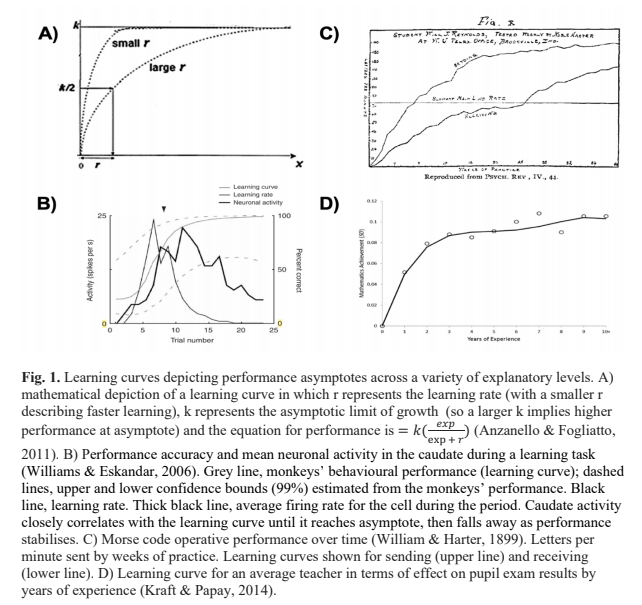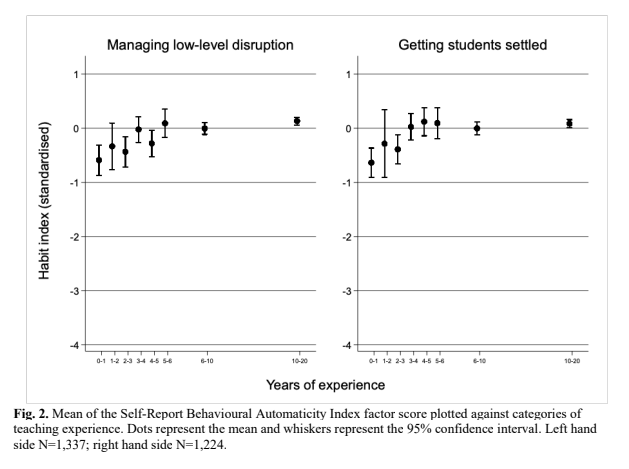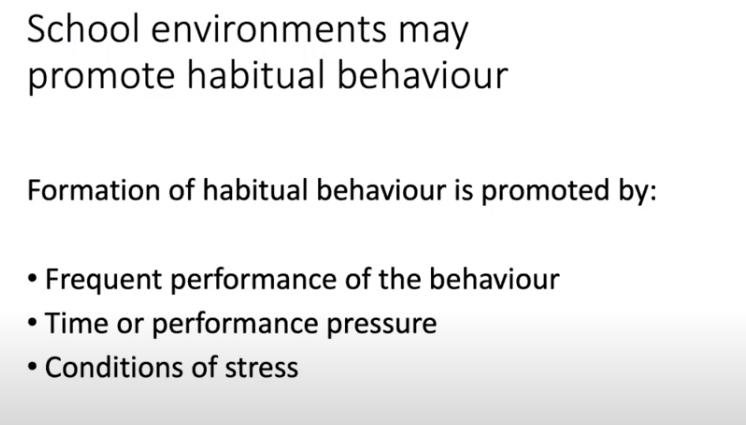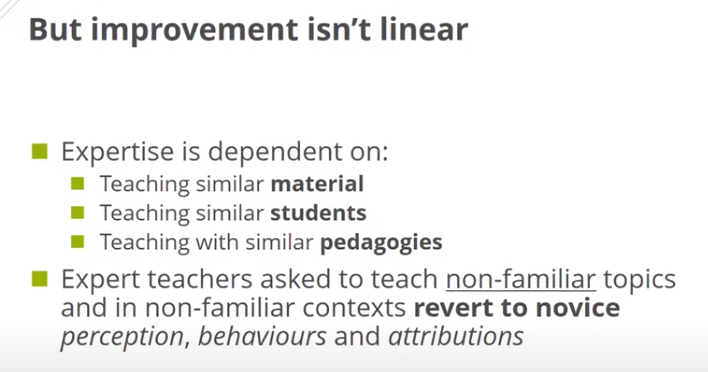*Finally* got around to reading this fascinating paper by @mikehobbiss @DrSamSims @profbeckyallen on habit formation and teacher development. Definitely worth watching this seminar:
The paper is, happily, open access here: https://twitter.com/mikehobbiss/status/1312103906529271810?s=20
The authors note that the classic effectiveness curves we see in such papers such as @MatthewAKraft & John Papay's 2014 paper are remarkably similar to learning & automaticity curves elsewhere.
Using @TeacherTapp data they find self-reported automaticity (indicating habit formation) matches the same patterns.
They reflect that the literature suggests that three factors sustain (and prevent change to) habitual behaviour, and that these three are strongly present in teaching.
I found it particularly interesting that stress conditions are shown to promote automaticity and to make us less sensitive to noticing if the habitual/automatic behaviour is not producing the desired outcome, i.e. it suppresses learning.
They reflect that, once habits are formed, we're less able to intentionally change them. A lovely 1974 paper reflected how teachers intention to change their practice was uncorrelated with how much it actually changed (which was very little if at all).
Overall this is a lovely paper about teacher actions and habits. I think it adds further weight to the challenge we have in designing schools and professional development to overcome the plateaus that we see forming in teacher effectiveness.
A few additional reflections. Firstly we from e.g. Hogan (2003) that teachers behaviours as experts can revert to behaviours as novices (i.e. reducing automaticity) when they are asked to teach in unfamiliar contexts, teach unfamiliar material and in unfamiliar ways.
(Slide is from my 2019 @researchEdhome talk and also includes evidence from Wang & Hall (2018) paper on teacher attributions.)
Therefore one promising avenue to promote teacher learning is to try and create slightly unfamiliar conditions, albeit ones which are low stress & supportive such that it reduces the urge to jump back into automatic behaviour.
Another thought is that this theory about habit may help explain some of the contributions of teacher working conditions to teacher growth. [Image from a forthcoming @TeacherDevTrust working paper (published in the next couple of weeks). ]
Some of these aspects could be related to reducing stress & pressure and allowing teachers to slow down, reflect better on otherwise-automatic behaviours and start making a change to them.
Finally, I still feel that the overall field about teacher PD would benefit from more consideration of how teacher expertise affects teacher perceptions - i.e. the stimulus to actions, and how to change this.
Anyway, huge thanks to @mikehobbiss @DrSamSims @profbeckyallen for a really fascinating paper. Well worth a read.

 Read on Twitter
Read on Twitter





![Another thought is that this theory about habit may help explain some of the contributions of teacher working conditions to teacher growth. [Image from a forthcoming @TeacherDevTrust working paper (published in the next couple of weeks). ] Another thought is that this theory about habit may help explain some of the contributions of teacher working conditions to teacher growth. [Image from a forthcoming @TeacherDevTrust working paper (published in the next couple of weeks). ]](https://pbs.twimg.com/media/Etdmwr2WQAAofLu.png)



